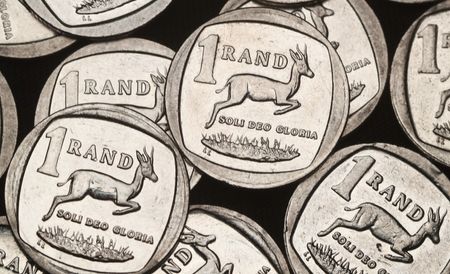JOHANNESBURG (Reuters) -South Africa’s rand weakened on Thursday as poor mining data added to worries of slower economic growth, coming right after two successive similar drops – in manufacturing and retail sales numbers – that dampened investor confidence.
At 1500 GMT, the rand traded at around 14.6744 against the dollar, down 0.77% from its previous close.
South Africa’s total mining output fell by 6% year on year in February compared to a 1.7% rise in January, Statistics South Africa said on Thursday.
Data on Wednesday showed retail sales fell 0.5% month-on-month in February, signalling weakening consumer activity amid rising interest rates. On Monday, figures showed manufacturing output was down 1.1% month-on-month in February.
The rand, like any other riskier asset, falls when investors rush to safe-haven dollar during times of uncertain economic outlook. But with South Africa being a resource-driven country, rising prices of commodities often lend support to the local currency in hopes that the economy would do well.
This has primarily been the major reason for the outperformance of rand relative to other emerging market currencies.
But market experts feel that a cool down in commodity prices is coming soon, which is not good news for the rand amid rising interest rates which pushes money back into dollar.
“Q2.22 (second quarter) is currently likely to see the rand slip further away from R14.50/USD, on average recording around R14.95/USD, as most commodity prices wane further over the second quarter, although this is also likely to be uneven as some commodities lead others,” Annabel Bishop, chief economist at Investec, told Reuters in an emailed comment.
Stocks on the Johannesburg Stock Exchange (JSE) rose a tad, led again by a jump in resources stocks.
The benchmark all-share index ended up 0.35% to 73,383 points and the blue-chip index of top 40 companies rose 0.43% to 66,482 points.
Government bonds also weakened, with the yield on the benchmark 2030 maturity up 7 basis points to 9.775%.
(Reporting by Olivia Kumwenda-Mtambo and Promit Mukherjee; Editing by Kenneth Maxwell and Alison Williams)











